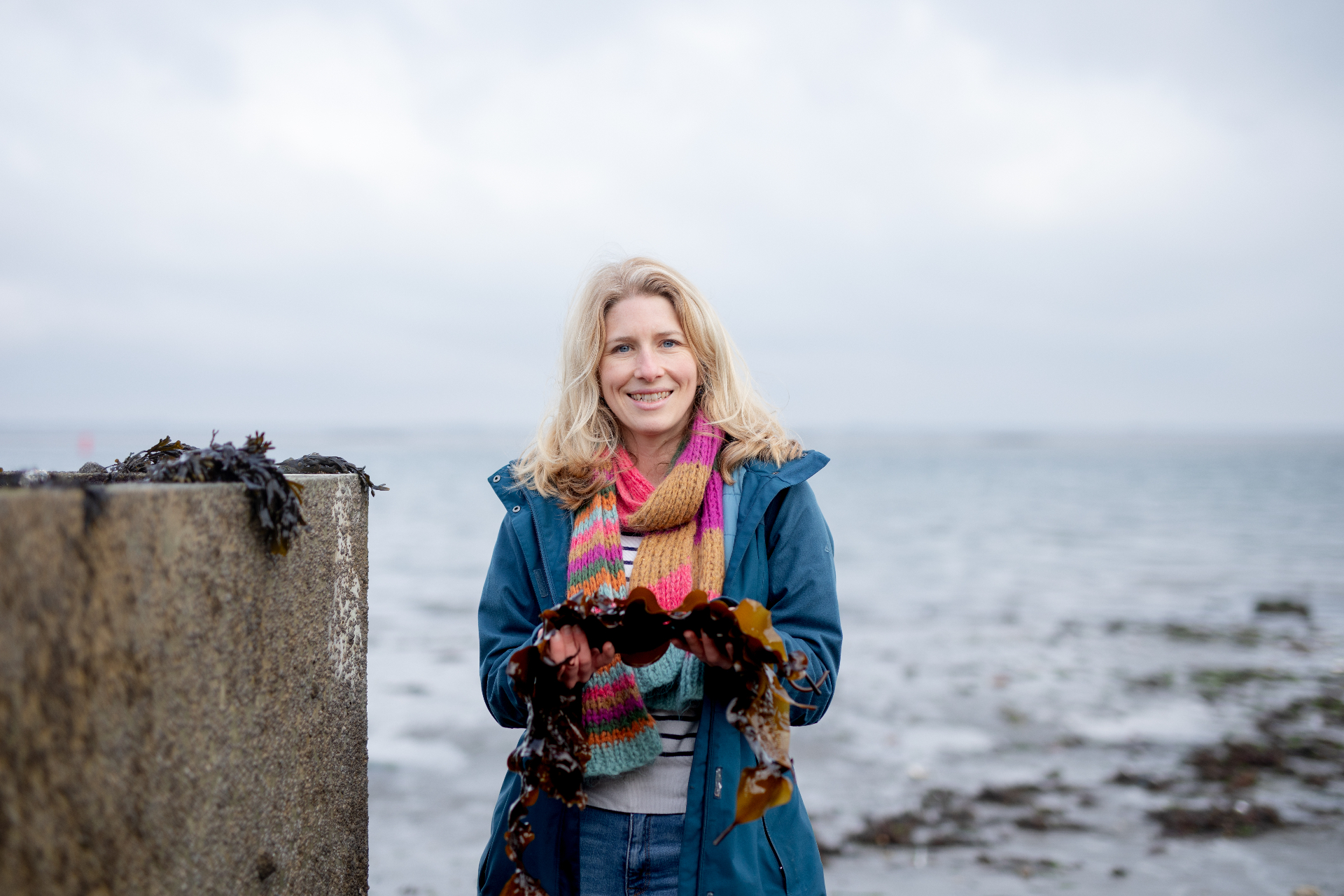Dr. Jessica Knoop
Understanding the complex life cycle of seaweeds
Marine biologist – or ‘phycologist’ as she likes to call herself – Jessica Knoop studies the complex life cycle of various seaweeds. “These organisms may seem like ‘just a slimy heap of biomass on the beach’ to some, but in fact they lead an extremely complex and fascinating life cycle. They also hold potential solutions to future problems in food and feed production and even in sustainable production of bioplastics”, Knoop says. “There’s barely anything they cannot be used for!”
More than sushi
Seaweeds are studied for a very long time already as a source of food. In sushi, for example, they have been an essential ingredient for centuries. “In Europe, most of the seaweed is harvested from the wild, though”, Knoop explains. “If we want to farm seaweeds in a controlled environment and, moreover, grow them year-round, then we need to know much more about the reproduction and the environmental needs of these organisms.”
Lunar cycle
In her newly set up research line at the Department of Estuarine and Delta Systems, Knoop studies mainly native species of seaweed, like the ‘red weeds’ Pyropia and Porphyra. “The bottle neck in farming these weeds is the release of spores from the filamentous life stage of the plants. They need a certain temperature, certain nutrients and even a certain length of daylight. Like coral polyps, some seaweeds even have a lunar cycle in their reproduction. So yes, it can be very complex to grow seaweeds year-round in a controlled environment.”
Proteins, carbohydrates, minerals and vitamins
The benefits of growing seaweeds can be huge, though, Knoop says. “Without the need for fresh water or fertilizers, we could grow huge amounts of biomass, serving as a source of proteins, carbohydrates, minerals and vitamins. The research into seaweeds as a source of bioplastics is also promising. Growing seaweeds could even help us to clean up the excess of nutrients we piled up in our coastal seas and overall improve water quality.”
Sustainable production systems
While looking into the details of growing seaweeds in farming systems, Knoop wants to keep a watchful eye on the sustainability of these production systems. “If we understand these organisms better, they can help to solve many future problems. I specifically have high hopes for farming native red seaweeds such as Nori or Dulse in European seaweed farms. But we should always be careful not to burden the environment by farming these organisms. And a challenge by itself is to convince more people that seaweeds are not only useful but also nutritious and very tasty as well!”
Part of this research will be done in the context of the Delta Climate Center

